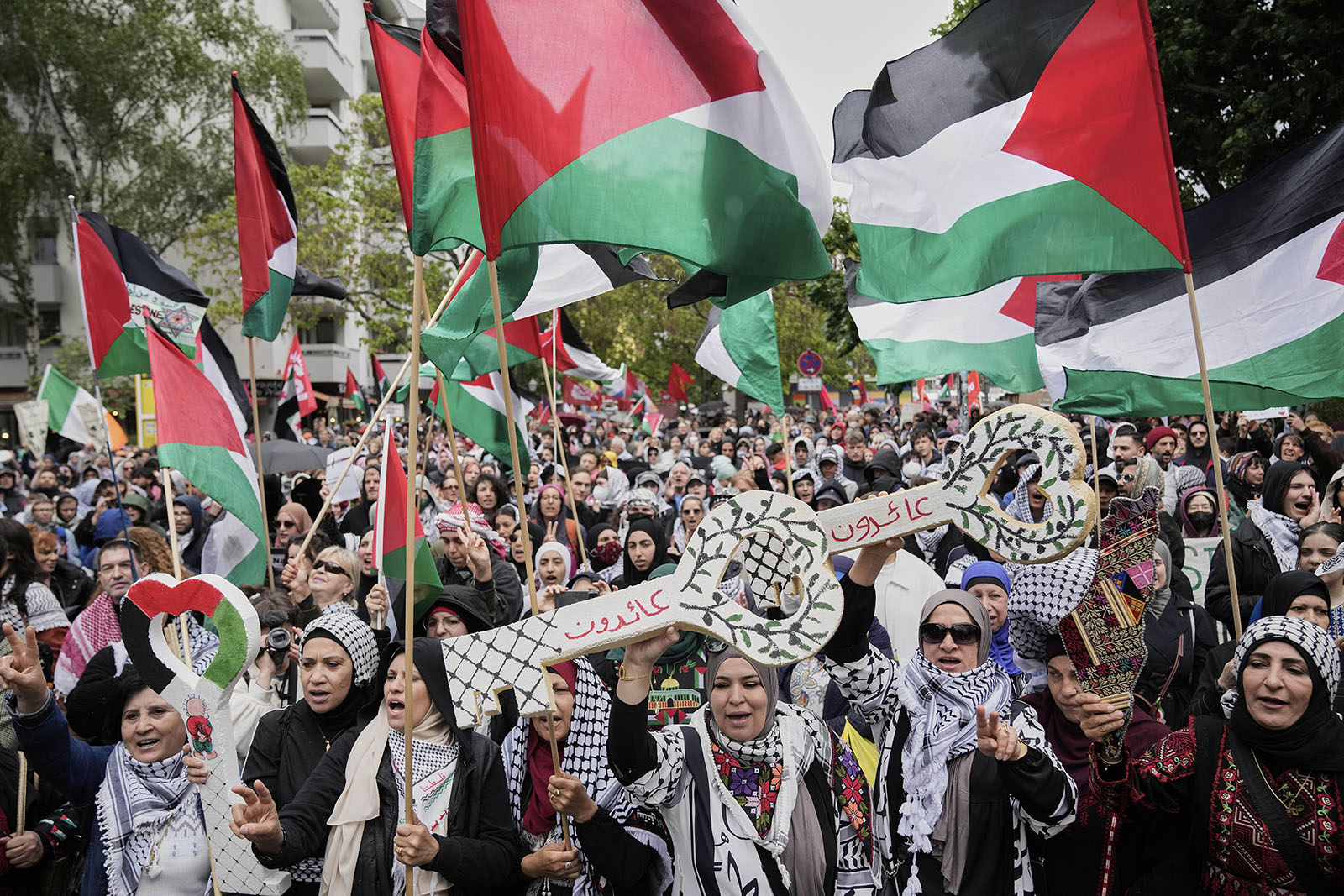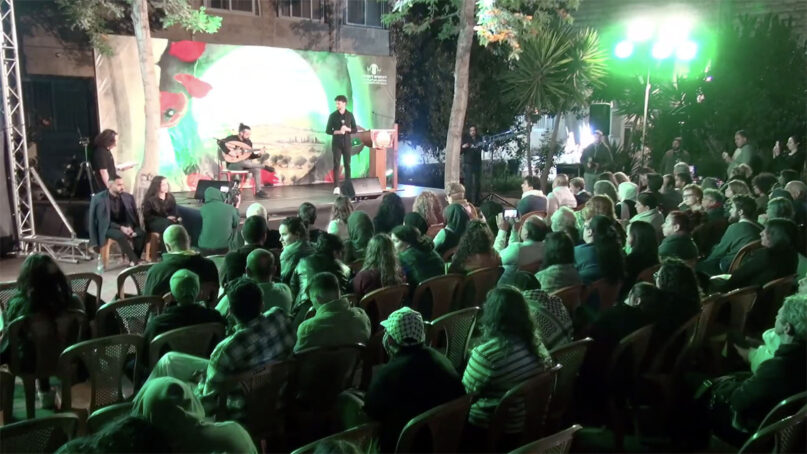
(RNS) — Every year on May 15, Palestinians around the world pause to memorialize what they call the Nakba, or “catastrophe,” that displaced a majority of Palestinians during the establishment of the state of Israel in 1948.
As Israel’s 19-month-old military campaign in Gaza continues, some American Jews are joining commemorations of the offensive that started it all 77 years ago.
Many U.S. Jews watched a livestream on Thursday (May 15) of the Joint Nakba Remembrance Ceremony held in Jerusalem by the group Combatants for Peace. Others joined U.S. Rep. Rashida Tlaib, the only Palestinian American in Congress, on Wednesday as she reintroduced a resolution calling for the U.S. to formally recognize the Nakba.
Tlaib’s resolution, which encouraged education and public understanding of the facts of the Nakba, was endorsed by half a dozen Jewish groups, including IfNotNow, Jewish Voice for Peace and Rabbis for Ceasefire.
Although participation in Nakba commemorations are not widespread in the American Jewish community, they are gaining more attention. More Jews are learning about the mass displacement of some 700,000 Palestinians that coincided with the establishment of the state of Israel. And more see it as an important event worthy of observing and lamenting.
“As Jews, so much of our tradition focuses on remembering, which is why it’s all the more important to reckon with both the history and the present reality, if we want to have any hope for reaching a just future there,” said Eva Borgwardt, a spokesperson for IfNotNow, a Jewish anti-Israeli-occupation group.

People attend the sixth annual Combatants for Peace Nakba Remembrance Ceremony, titled “Holding onto Home, Holding onto Hope,” in Beit Jala, near Bethlehem in the West Bank, May 15, 2025. (Video screen grab)
Combatants for Peace is a 19-year-old nonprofit of Israelis and Palestinians committed to nonviolence and to ending the occupation. Six years ago the group started an annual joint Palestinian-Israeli commemoration livestreamed around the world. Among its 59 co-sponsors this year were several U.S. synagogues in New York, Boston and Chicago in addition to T’ruah: The Rabbinic Call to Human Rights. Several U.S. churches and Christian nonprofits were also co-sponsors.
This year’s ceremony, “Holding onto Home, Holding onto Hope,” took place in an outdoor plaza in Beit Jala, a Palestinian Christian town on the outskirts of Bethlehem. At least 1,300 watched it online live.
“The Nakba is not just a historical event,” wrote Rana Salman, co-director of Combatants for Peace, in an op-ed in the Israeli newspaper Haaretz on Thursday. “It is a lived and ongoing reality.”
On Thursday, Israeli military strikes killed dozens across the Gaza Strip in an ongoing conflict that has killed nearly 53,000 people, according Gaza’s health ministry. Benjamin Netanyahu, the Israeli prime minister, has threatened a significant escalation, including a ground invasion, unless Hamas frees the remaining hostages it captured as part of its Oct 7, 2023, attack that left as many as 1,200 dead in Israel.
RELATED: Netanyahu says there is ‘no way’ Israel halts the war in Gaza until Hamas is defeated
The Nakba has never been formally recognized in Israel, and efforts to erase it from public discourse continue. Just this week there were calls by Israeli ministers to withhold funding from the Hebrew University in Jerusalem and Tel Aviv University over Nakba Day commemorations taking place on campus.
In the U.S., the rabbinic human rights organization T’ruah has been co-sponsoring the event for several years.
“Our role is recognizing that the only future is a shared future,” said Rabbi Jenna Shaw, T’ruah’s associate director of Israel Campaigns and Education. “And the only way to build that future is acknowledging this incredibly painful history. And by doing that, we must listen, and we must bear witness, particularly as Jews.”
The term Nakba Day was coined in 1998 by then-Palestinian leader Yasser Arafat. It refers to the events shortly before and after May 14, 1948, when Israeli militias in what would become the Israel Defense Forces expelled and killed Palestinians to ensure that the new state would have a Jewish majority. Most Palestinians ended up as stateless refugees in the Gaza Strip, the occupied West Bank and neighboring Arab countries.

The 1948 expulsion of Palestinian women and children from Tantura to Furaydis. (Photo by Benno Rothenberg/Meitar Collection/National Library of Israel/The Pritzker Family National Photography Collection/CC-BY 4.0)
Today, many fear a repeat of that initial expulsion in Gaza and the West Bank. Tlaib’s resolution, which did not receive a House vote, denounces “the ongoing Nakba of the Palestinian people.”
“It feels clearer than ever, as Israeli officials are enacting a campaign of expulsion and massacre greater even than the Nakba in 1948,” Borgwardt said. “If we don’t reckon with this history and the reality of the ongoing Nakba, how can we hope to reach a future where everyone, Palestinians and Jews and people around the world, are truly free?”
RELATED: What Oct. 7 and its fallout cost a high school in Philadelphia
